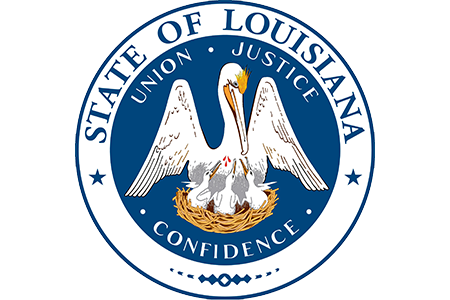The Veterans Treatment Court (VTC)at the 19th JDC officially launched in 2022 when the court received a $700,000 BJA Veterans Treatment Court Discretionary Grant for the planning and implementation of the Veterans Treatment Court program. Soon thereafter, a team composed of both veterans and criminal justice stakeholders began developing the framework for the program under the guidance of presiding Judge Ron Johnson.
“When I see a veteran, I see courage. I see strength, dedication, and sacrifice. But I also see suffering and struggling. I hope that in the near future, we’ll be able to provide services to help them." VTC Presiding Judge Ron Johnson
Origins of Veterans Treatment Courts
In 2008, Judge Robert Russell, presiding Judge of the Buffalo Drug and Mental Health Courts, created the Nation’s first Veterans Treatment Court in response to the increasing number of veterans appearing in his courtroom who struggled with addiction and/or suffered from mental illness. Within 2 years, Judge Russell had assisted 20 other courts with the creation of Veterans Treatment Courts.
Problems Faced by our Veterans
The Justice Department has estimated that as many as 60% of incarcerated veterans struggled with substance use disorder. Both the trauma of combat and other service-related experiences are contributing factors that require special attention. Although VTC model is a based on the current Recovery Court model, it is designed with a specific focus on veterans, as defined by Louisiana R.S. 13:5364.1. The Louisiana Veterans Court Program is set forth in R.S. 13:5366. A Veterans Treatment Court is a court-supervised program that provides justice-involved veterans with the structure, accountability, treatment, and mentoring needed to repair their lives. By keeping veterans out of jail and prison, the goal for the Veterans Treatment Court is to help save their lives, families, and futures, all while reducing costs to taxpayers.
NOTICE
This Web site is funded in whole or in part through a grant from the Bureau of Justice Assistance, Office of Justice Programs, U.S. Department of Justice. Neither the U.S. Department of Justice nor any of its components operate, control, are responsible for, or necessarily endorse, this Web site (including, without limitation, its content, technical infrastructure, and policies, and any services or tools provided).


